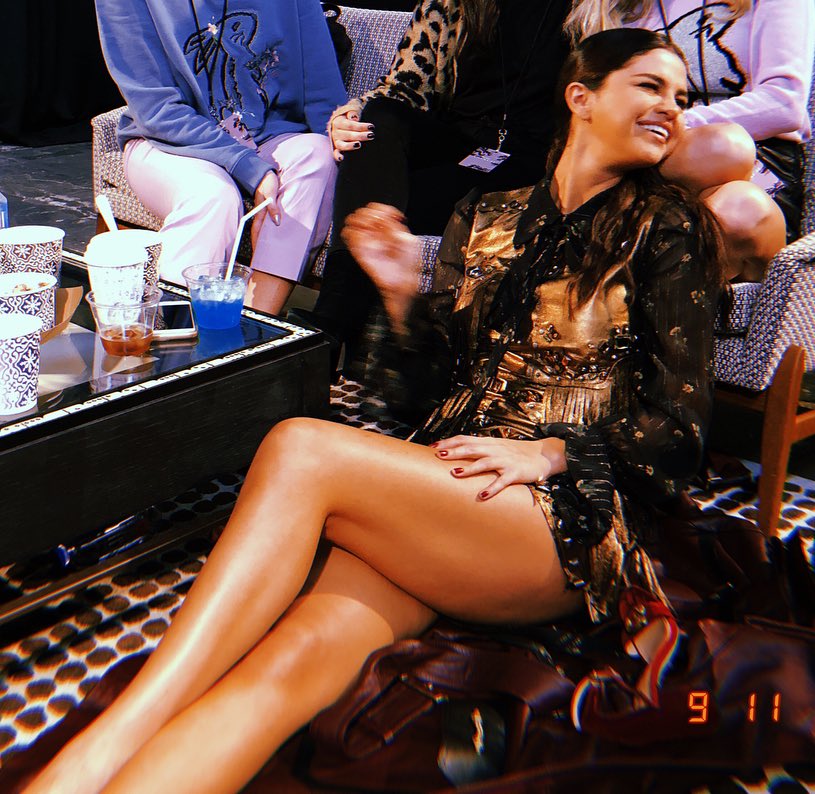In a digital landscape dominated by filters, algorithms, and endless comparison, Selena Gomez stands as one of the few public figures who has managed to transform vulnerability into power. Once known primarily for her pop hits and television success, Gomez has evolved into something much greater — a cultural voice for authenticity, mental wellness, and emotional truth. Her ability to connect with people not through perfection but through honesty has made her one of the most relatable celebrities of her generation, even as she continues to reign as one of the most followed women on Instagram.






Selena Gomez’s relationship with social media has always been complex, and it is precisely this complexity that makes her story so compelling. As someone who grew up in front of the world, she experienced both the exhilarating and damaging sides of fame. Her rise from a child star on Disney Channel’s Wizards of Waverly Place to a global music and acting powerhouse happened at a time when social media was becoming the ultimate measure of relevance. The pressure to constantly appear flawless, connected, and upbeat was immense — and, as Gomez would later admit, deeply exhausting.



Rather than succumb to the toxic perfectionism that social media often demands, Gomez began to redefine her relationship with it. In interviews and through her actions, she has been strikingly open about the emotional toll of online scrutiny, admitting that she has stepped away from social platforms for extended periods to protect her mental health. These hiatuses weren’t just symbolic; they were transformative. During those breaks, she learned to prioritize peace over popularity, and in doing so, reshaped the narrative around what it means to be a public figure in the digital era.



That shift in mindset became the foundation for one of her most meaningful ventures: Wondermind, a multimedia mental health platform she co-founded to promote open conversations around emotional well-being. Wondermind represents everything Gomez has come to stand for — raw honesty, empathy, and community over competition. Rather than presenting wellness as a trend, she approaches it as a shared journey, acknowledging that healing is messy, personal, and nonlinear. The project not only underscores her commitment to mental health advocacy but also demonstrates how a celebrity platform can be used for something deeper than self-promotion.



This authenticity carries through every facet of her public persona. Whether she’s sharing candid moments of vulnerability, laughing at her own imperfections, or discussing the challenges of living with lupus, Gomez has humanized fame in a way few others have managed. Her openness about her physical and mental health struggles has sparked global conversations about chronic illness, body image, and emotional resilience. Instead of hiding her insecurities, she has turned them into points of connection — a move that resonates powerfully with audiences weary of curated perfection.



Her social media presence reflects this new standard of sincerity. Where others chase engagement through filters and trends, Gomez opts for simplicity and realness. A photo of her cooking at home, a makeup-free selfie, or a heartfelt message to her fans can garner millions of likes — not because they’re polished, but because they’re real. Her followers see not a brand, but a person. That’s rare in today’s influencer-driven landscape, where authenticity is often staged. Gomez’s approach feels effortless because it is genuine; she has nothing to prove.



The same authenticity extends to her business ventures, especially Rare Beauty. Launched in 2020, the brand was built on the philosophy that makeup should celebrate individuality, not mask it. From its inclusive shade range to its messaging about self-acceptance, Rare Beauty embodies Gomez’s belief that beauty lies in imperfection. She often speaks about how the brand’s mission goes beyond cosmetics — it’s about helping people embrace who they are, just as they are. A portion of the proceeds supports mental health initiatives, reinforcing the alignment between her entrepreneurial vision and her personal values.



In many ways, Selena Gomez’s authenticity has become her superpower in an industry obsessed with image. She doesn’t shy away from showing her scars — literally and metaphorically. In 2017, she underwent a kidney transplant due to complications from lupus, a life-altering event that forced her to reassess her priorities. Instead of hiding that part of her life, she shared her story with honesty and gratitude, crediting her best friend for the selfless act that saved her life. This openness transformed her public image from pop star to survivor — a woman who has endured, healed, and continues to grow.



Her journey also mirrors the broader cultural shift toward transparency and self-compassion. As younger generations become increasingly aware of the negative effects of social media on mental health, Gomez’s example offers a refreshing counter-narrative: that boundaries are necessary, that imperfection is beautiful, and that one’s worth cannot be measured in likes or followers. Her vulnerability has created a ripple effect across social media, encouraging others — from influencers to everyday users — to share more authentically.



The irony is that by rejecting the superficial aspects of fame, Selena Gomez has become even more influential. She remains one of the most followed people on Instagram, yet her presence feels less like a performance and more like a conversation. Fans don’t just consume her content; they connect with it. Her posts often inspire empathy, self-reflection, and dialogue about issues that truly matter — mental health, body positivity, and kindness in the digital space.




Her recent projects also reflect this evolution. On her hit Hulu series Only Murders in the Building, Gomez brings her natural charisma and emotional depth to the role of Mabel Mora, earning critical praise for her subtle, grounded performance. The character’s mix of wit and vulnerability mirrors much of what fans admire in Gomez herself. It’s as though her art and her life have found harmony — both telling stories about truth, resilience, and the courage to be real.



Offscreen, Gomez continues to use her platform for social good, advocating for causes like mental health reform, body inclusivity, and equality. Her philanthropic work through the Rare Impact Fund and various mental health organizations demonstrates a commitment to lasting change. She has become a role model not just for aspiring artists but for anyone navigating the pressures of modern life. Her message is clear: self-worth isn’t determined by external validation, but by self-acceptance and purpose.



In 2025, as social media continues to evolve with new technologies and platforms, Selena Gomez remains a steady voice of sincerity in a noisy digital world. Her presence is a reminder that authenticity never goes out of style — and that transparency, compassion, and emotional honesty are far more powerful than curated perfection. In an era defined by performance, she chooses presence. In a culture that prizes relevance, she prioritizes peace.
Ultimately, Selena Gomez’s influence transcends entertainment. She represents a movement toward mindful living in the age of information overload. Her journey teaches us that real connection begins with vulnerability — that it’s okay to unplug, to rest, to heal, and to show up as imperfectly human. By living that truth so publicly, she gives others permission to do the same.




Selena Gomez has not only redefined what it means to be authentic in the digital age — she’s redefined what it means to be seen. And in doing so, she’s given her generation something far more valuable than the illusion of perfection: the freedom to be real.